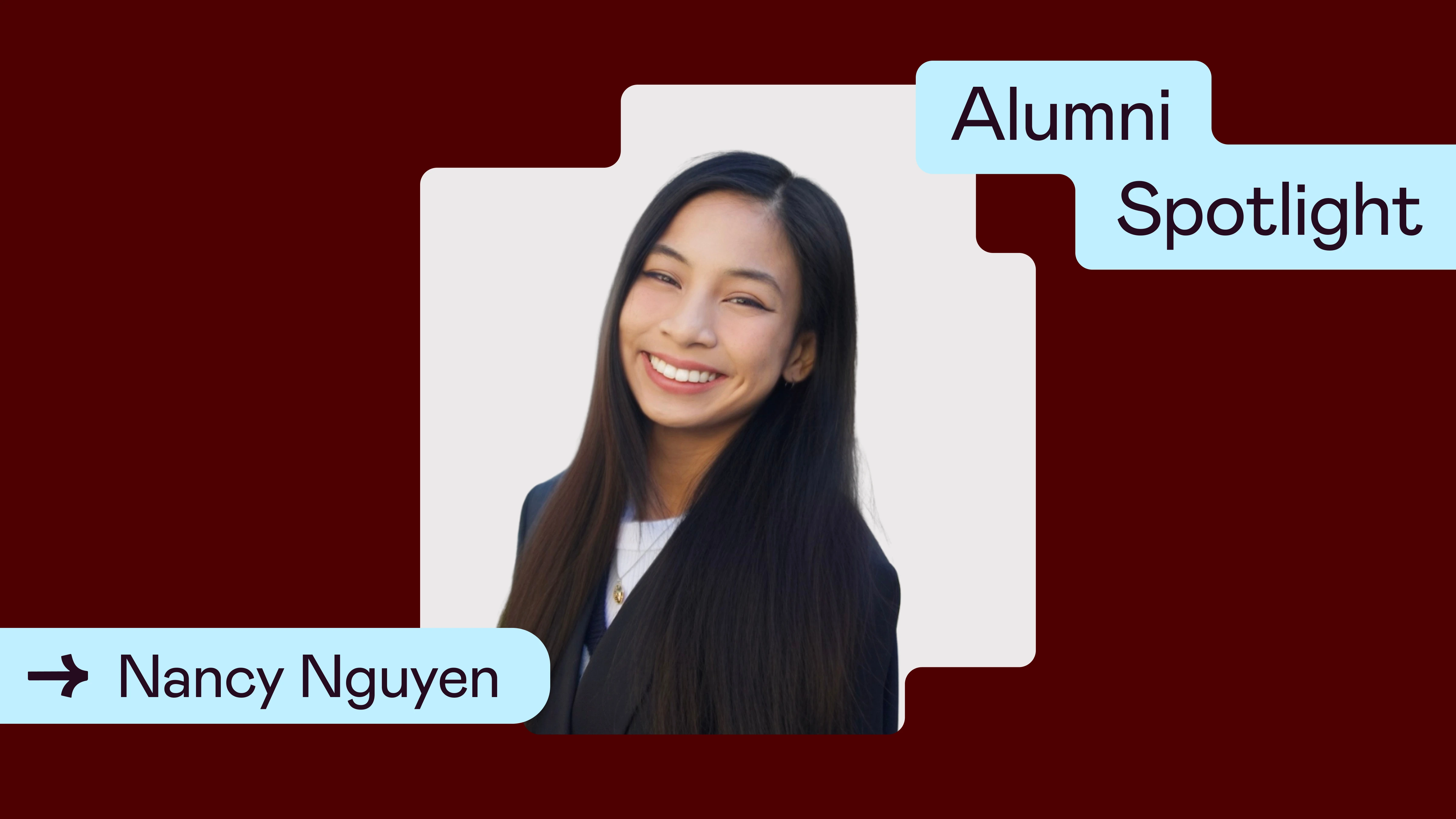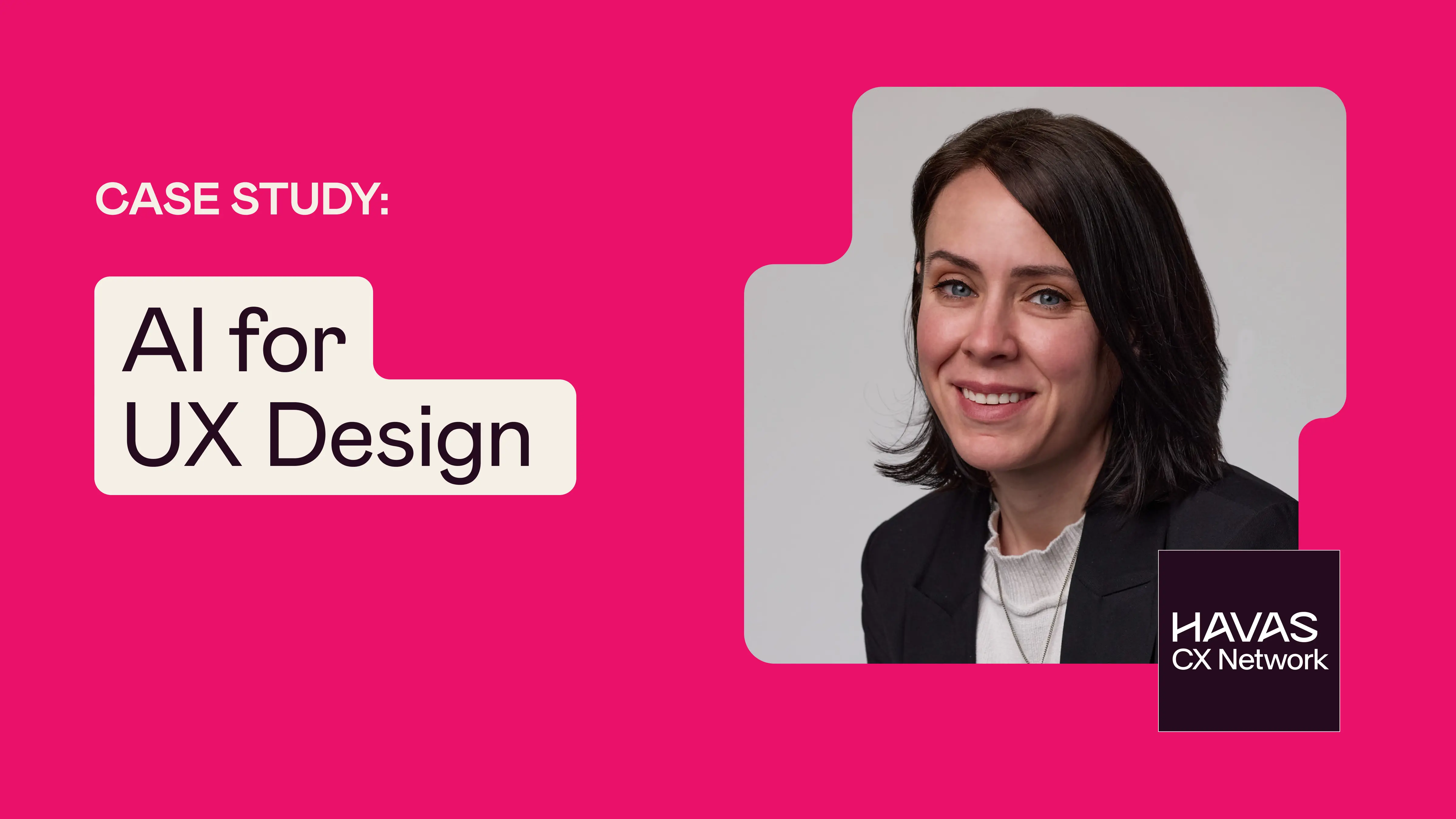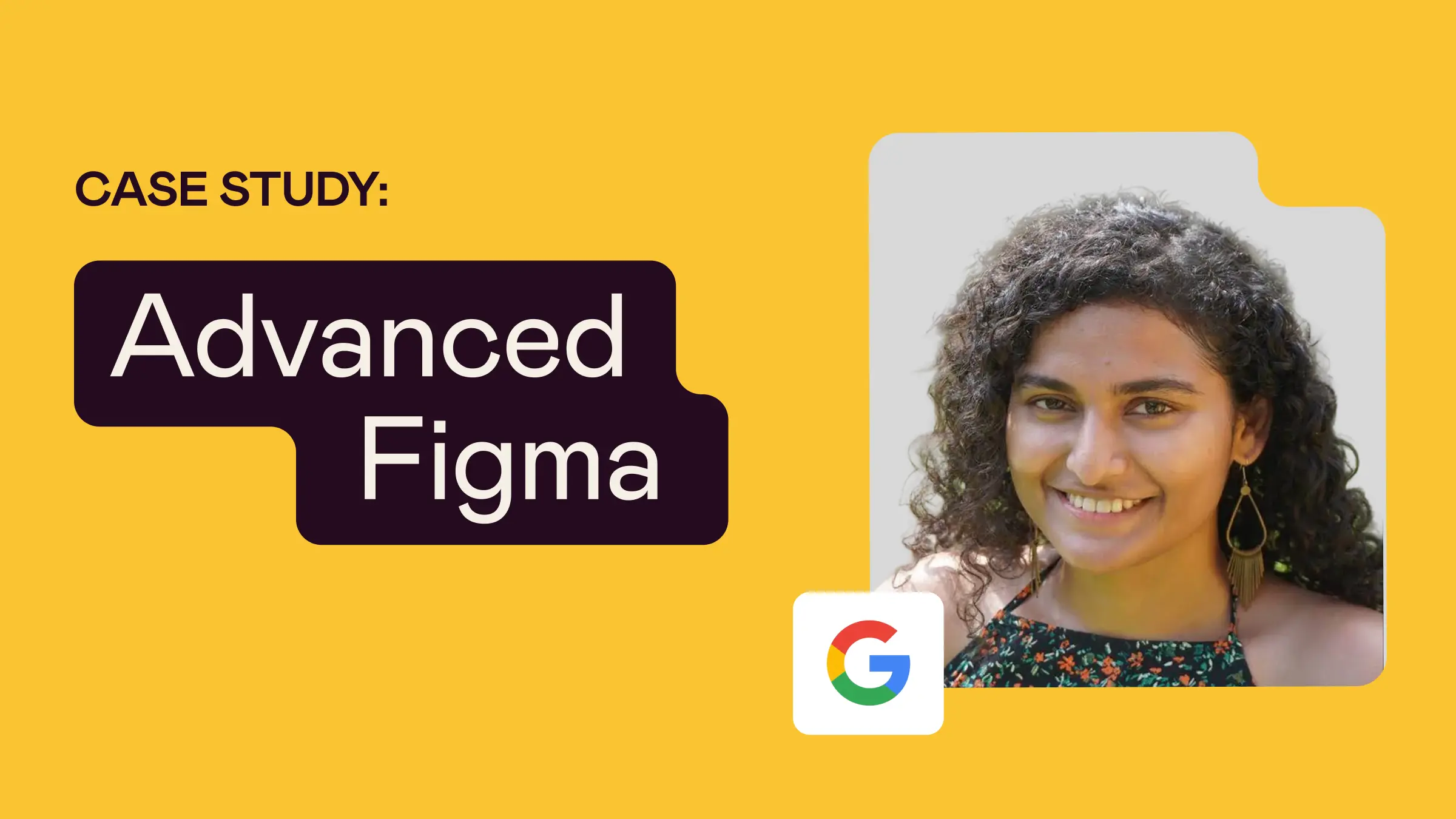UX Academy alum Adaugo Iwuala wanted to find a way to leverage her background in medicine and make a career change into a new field. After discovering UX, she found it to be the perfect fit, where she could approach human-centered work through a lens of both research and empathy. We spoke with Adaugo about her time in UX Academy, the ways mentorship has supported her learning, and what she’s working on now in her first UX role at Pinterest.
Tell me a bit about what you were doing before you moved into UX/UI?
My prior career was in medicine, I was a physician assistant. I was seeing my own patients working in the hospital, and I also worked in a clinic. Working as a PA can be a rewarding career, but I just realized it wasn't what I expected. It was quite intense, taking care of people’s lives, and after trying a few different specialties and settings, it ended up not being a good fit for me. And that’s what propelled me into looking at another career.
I would imagine there’s some overlap between medicine and UX, in terms of considering people’s needs. Was that a motivator for you?
Yes. When I was looking for new careers, I was specifically looking for a career where I could empathize with people and help solve their problems. That is essentially what it is to be a clinician, and I still wanted that. The empathy and problem-solving aspects were really important to me. When I discovered UX and learned a little bit more about the design process, I realized it was similar to what I was already doing.
You’re listening to people’s stories, coming up with a plan, and iterating on that plan over time. And you’re also making decisions based on evidence. And the design process is very similar. We empathize, research, come up with a plan, and iterate on that design. So medicine and design overlap a lot. It’s just a totally different setting.

I’m sure it’s rewarding to have been able to carry those skills over! Can you tell me about your experience in UX Academy?
I really enjoyed the entire experience. I started out in UX Academy Foundations and then moved on to UX Academy. In UX Academy, I really loved my mentor Moira Cosgrove—I shout her out all the time! She’s a fantastic designer, but also very good at mentoring and teaching. She would give me feedback on my designs, but also provide resources, links, and things to read to understand concepts further.
I also really enjoyed the way the program is set up. I’m definitely a kinesthetic learner—I learn by doing. I really liked the hands-on nature of the lessons, and how they led to coming up with the larger portfolio projects at the end more on your own, which was rewarding.
My mentorship experience was amazing. I felt like she was my mentor, but we also became friends. I looked forward to our meetings, and she was open to hearing about my goals, plans, and dreams for my career.
How did you find the community aspect?
With the group crits, it was nice to get some eyes on my work and get used to receiving critiques, because group critiques are something we do now at my job. So I got some practice being able to understand what feedback is important, and also get comfortable with people pointing out things when it comes to my work. So that was helpful.
With Discord, I’m in Baltimore right now, and I was able to find a local channel and connect with people who are in the area! That was really nice—I met one woman who was in UX Academy, just a couple of months ahead of me. We helped in supporting and encouraging each other, and it was nice to have that in-person interaction with someone who understands what it’s like to be a Designlab student.
That’s amazing you were able to connect with someone in your area! What did you find most rewarding about the program?
Working on the portfolio projects at the end, to me, that was so rewarding. I knew I could do design. But having work to show for myself in this new role—the people in my life were really impressed. And honestly, I was like, ‘I can’t believe it either!’. So to have a final portfolio, that’s extensive, with different types of projects. It was super, super rewarding.
And again, my mentorship experience was amazing. I felt like she was my mentor, but we also became friends. I looked forward to our meetings, and she was open to hearing about my goals, plans, and dreams for my career. I really enjoyed that time with her.

How did you find Career Services?
I also had an incredible career coach in Jayse Lee. Our sessions were super productive, and if I came in with questions, she would also have specific feedback. If I needed help with understanding how to approach a certain interview style, she gave me really pointed tips. She also helped with mock interviewing, or presenting my work, by letting me know what I did well and also how I can improve. And she was just a really great human! Our sessions were productive but also fun.
That’s so great to hear! And how was the process of finding your first role?
My journey was actually quite fast, I honestly think it was just a matter of timing and alignment. I now work at Pinterest, and when I finished UX Academy, the application opened basically that same day. The timing was amazing, because it was a role I’d been wanting even before I finished my coursework.
I'd been reading up online as much as I could about interview tips, application tips, expectations of the role, so when it was time to apply for Pinterest, I was super prepared, and I ended up getting the job
The job hunting process is stressful—I applied to a lot of other jobs in addition to Pinterest, less successfully. Because of that though, I was incredibly focused on my interview with Pinterest, so I was able to be very prepared. And the people who gave me a chance ended up being the role I really wanted. It only takes one, and it felt like a perfect match.

That’s awesome! And what are you working on now at Pinterest?
I work on the design system team, and it’s nice I’m in an apprentice role where everyone is expecting me to just come and learn. There's no pressure for me to perform at any certain level right now, and everyone is very supportive. If I ask a question, it never feels like an inconvenience. Everyone is super open to getting to know me and helping me learn.
As far as my actual role, Pinterest has their design system called Gestalt, and we as a team are responsible for standardizing the components that designers are going to use to create the app everybody is on. So that's buttons, that's search fields, tabs—every little kind of building block is designed and maintained by my team.
It is very complex, very detailed, and it's also very thoughtful. Whenever there is a question of changing something, it’s a meticulous decision, and we really consider it before we come up with a potential answer. It’s helping me to be even more intentional about my design decisions.
Trust yourself, trust in your ability, trust in your skills, and trust in your prior experience. It’s all relevant, and you can lean on those things when you do get rejection. And don’t ever let everybody tell you that you can’t do this! You will be able to do it. It’s just a matter of time.
At the same time, there’s a lot of big thinking, because you have to consider how everything we make fits into every single scenario on the app. Which is how I like to think! So it’s been a great experience.
We’re also very focused on accessibility—we make sure every component is accessible, and create standards across all our design work across the app to consider accessibility. I’m super passionate about DEI, so this part of my work really speaks to me!
It’s great to hear that you’re enjoying your work. Do you have any advice for people who might be looking into a career change?
For one, if you want to do it, just do it. Make it happen. When it came to a career change, I was so, so, scared to do it. But I'm so glad I took the leap and I didn't waste any more time thinking about it, because I was just so unhappy in my last career.
But despite it being scary, and being unsure, and worried about getting a job, I knew staying in my other profession wasn’t good for me. So that’s my advice: do it scared, do it unsure, do it without knowing exactly how it’s going to play out at the end.
And once you decide to do it, make sure you have a good mentor. I would not be half the designer I am today without my mentors in this program. And so I highly recommend for everybody to have mentorship, to find work with someone who will spend the time to critique your work, but also be super encouraging, will kind of spur you on when it gets hard.
Trust yourself, trust in your ability, trust in your skills, and trust in your prior experience. It’s all relevant, and you can lean on those things when you do get rejection. And don’t ever let everybody tell you that you can’t do this! You will be able to do it. It’s just a matter of time.
Check out some more student stories below:
Erik Peets’ Journey at Apple: From Customer Service to Product Design
Chofi's Journey: Finding New Purpose Within an Existing Design Career
Galyna’s Path to UX Designer: A Journey of Passion, Persistence, and Growth at Shopify



.svg)
.jpg)













